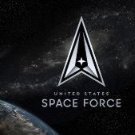Members Can Post Anonymously On This Site
DAF releases Women, Peace, Security Strategic Action Plan
-
Similar Topics
-
By Space Force
This exercise was designed to evaluate and refine tactical movements that have been instilled over the past several months, ensuring security forces Airmen are prepared for a deployed environment.
View the full article
-
By Space Force
The Department of the Air Force released updated guidance on Implementation of Executive Order 14168, Defending Women from Gender Ideology Extremism and Restoring Biological Truth to the Federal Government.
View the full article
-
By Space Force
the Department of the Air Force released the memorandum Implementation of Additional Guidance for Executive Order 14183, ‘Prioritizing Military Excellence and Readiness.
View the full article
-
By Space Force
the Department of the Air Force released the memorandum Department of the Air Force Civilian Workforce Hiring Freeze Guidance rescinding and replacing the previously provided memorandum Department of the Air Force Hiring Freeze.
View the full article
-
By Space Force
The U.S. Space Force and ULA launch team successfully completed the certification process of the Vulcan rocket. The first NSSL mission on Vulcan is expected this summer.
View the full article
-
-
Check out these Videos


Recommended Posts
Join the conversation
You can post now and register later. If you have an account, sign in now to post with your account.
Note: Your post will require moderator approval before it will be visible.